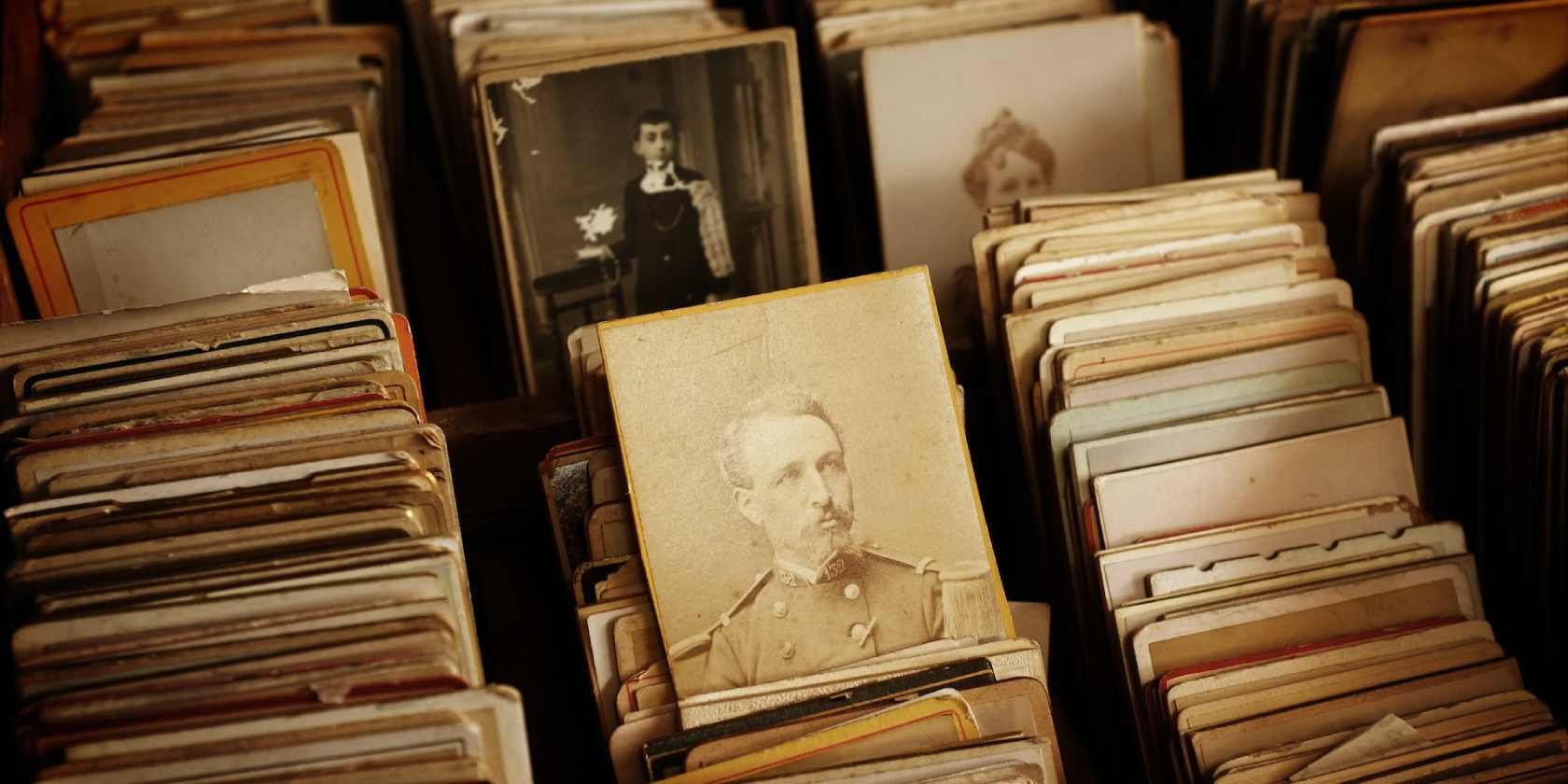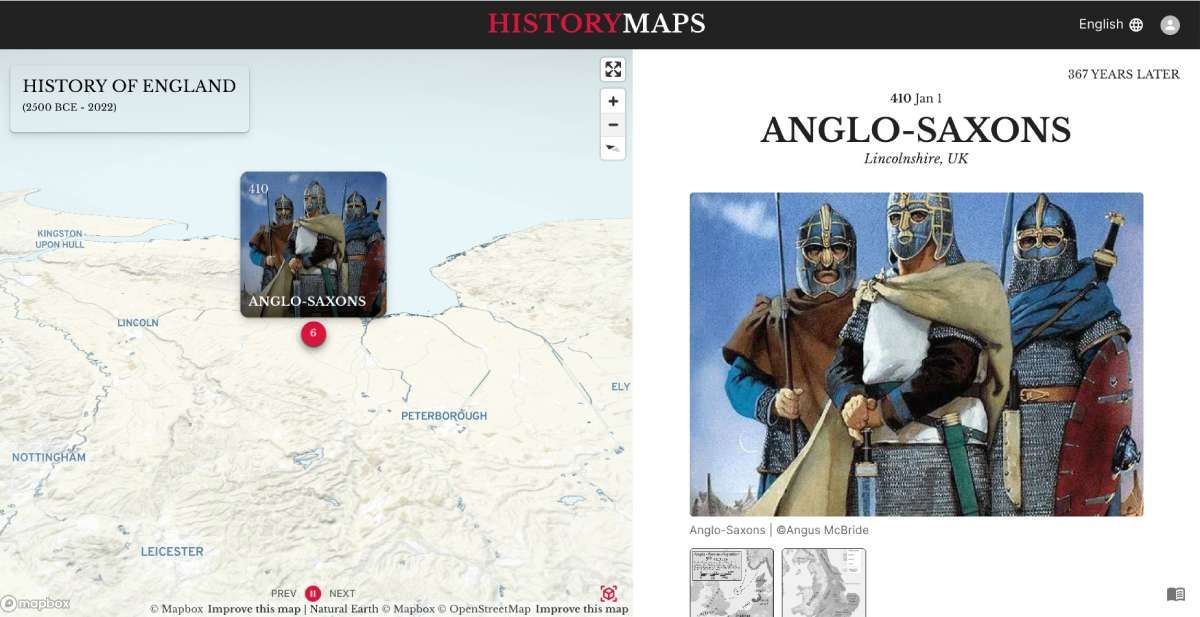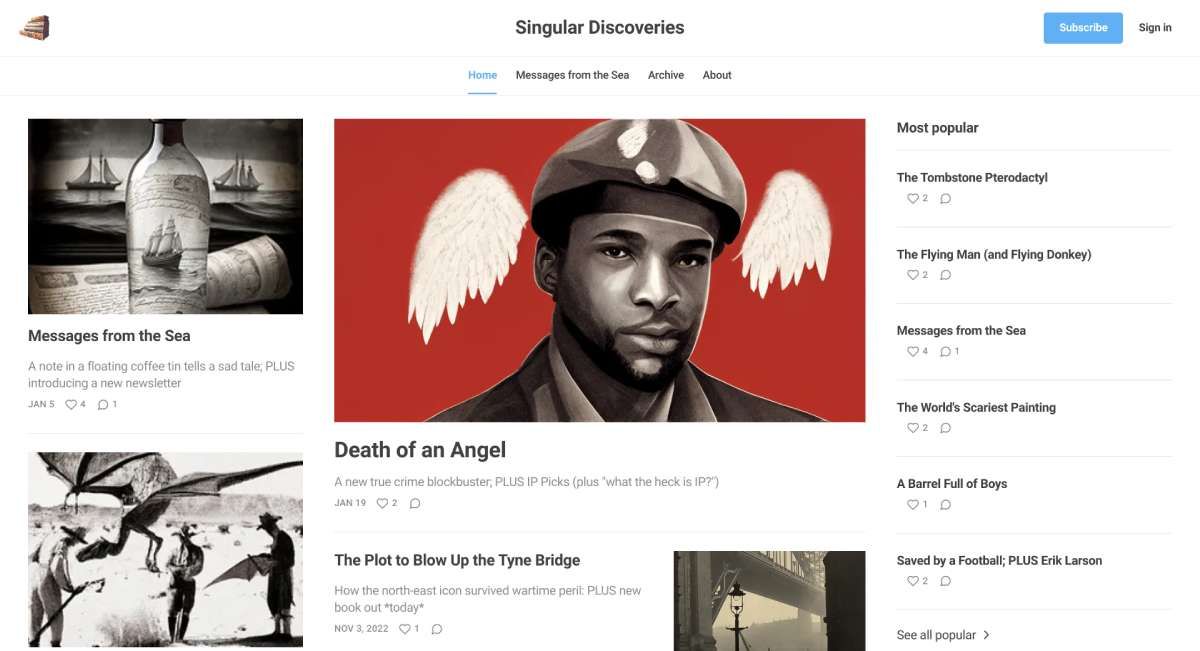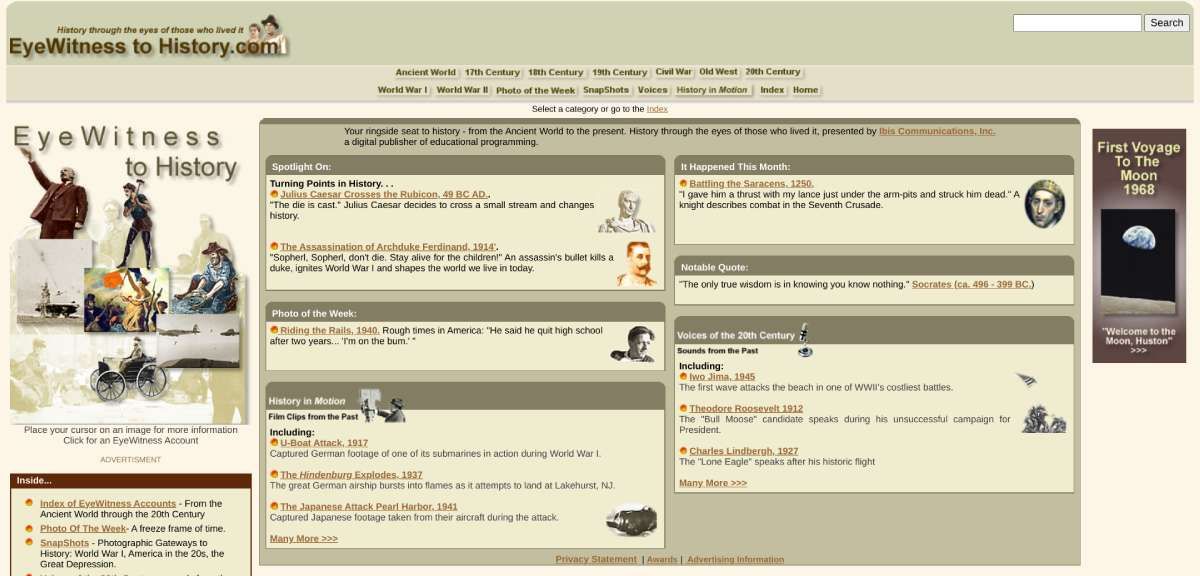If history doesn't interest you, it's only because you haven't found the right teacher. Textbooks and blackboards are not always the right way to learn about our past. From podcasts and YouTube channels to interactive maps and first-hand eyewitness accounts of events, these online resources came up with innovative ways to make history come alive.
1. History Maps (Web, Android, iOS): Learn History Visually Through Maps
History is best taught with a geographical map of the place in question. You need to be able to visualize the terrain and the routes to understand how and why certain events take place. History Maps pairs history lessons with live updating maps to help you learn history visually.
There are four main categories: ancient history, the medieval period, the early modern period, and the late modern period. Each of these has several map-based guided lessons, like the history of India, the Tang dynasty, the English Civil War, the Vietnam War, etc.
In the lesson, you'll find a two-pane view. The right side teaches history through a combination of text, videos, and images of each event within a lesson. As you move from one event to the next, the left side updates the map, taking you from one place to another on a globe. Like a slideshow, you can press "play" on the map to go through these events faster.
Download: History Maps for Android | iOS (Free)
2. Singular Discoveries (Newsletter): Fascinating Stories From Newspaper Archives
Paul Brown isn't a historian, but he has a unique interest in browsing newspaper archives and old manuscripts. These often throw up fascinating headlines and articles that lead him to further research on the subject matter. And then, he presents these fascinating, surprising, and forgotten stories from the past in his weekly newsletter, SIngular Discoveries.
Each issue is a brand new story, usually a 5-10 minute read. It's written more as a historical anecdote for entertainment and education — a story being told for non-historians rather than researchers. Brown also includes links to interesting articles and books he has read recently, or other such recommendations.
You can browse archive issues on his Substack website. We recommend starting with the Most Popular posts helpfully collected in the right sidebar. There's also a sub-section for his "Messages from the Sea" series, where Brown retrieves notes from bottles thrown into the sea. These usually don't have a lot of history to add to, but he does his best to follow up on the message's source.
3. Tasting History With Max Miller (YouTube): Old Recipes and Ancient Tales, Together
YouTuber Max Miller combines his two passions, cooking and history, in a remarkable series of videos on his channel, Tasting History with Max Miller. He digs up an ancient recipe, cooks it, and tastes it, while giving a history lesson along the way.
Each episode is about 20 minutes in length and takes you through the whole process of cooking that item. It typically starts with a historical background that leads to the importance of a particular dish to a culture. Miller then reads the recipe out loud and starts cooking it. Usually, when any step is going to take some time, Miller goes back into the history surrounding the recipe, adding new dimensions to the learning. In the end, he tastes and reviews the dish.
Food is an important cultural aspect of people's history, and Miller provides a unique glimpse at history with his videos. He doesn't restrict his cooking to any particular region or culture, so you'll find a wide variety. Miller also tackles cocktails and drinks from the old days in his spin-off, Drinking History. It's one of the best history channels on YouTube.
4. Eyewitness to History (Web): Historical Events Told by People Who Were There
Photographs, portraits, and official records give a clinically accurate version of what happened. But it misses the human aspect of story-telling. Eyewitness to History is a collection of people who were present at important times and events or met famous people from history and told their tales.
Each eyewitness account on the site includes citations and references as to its authenticity. In most cases, along with the account, the writers add a little background history as to the importance of the event or person. It's a series of strange but compelling stories, from dining with Attila the Hun in 448 AD to the Russians discovering a spy tunnel in Berlin in 1956. It's a fascinating way to bring history alive.
You can browse the website by broad categories of periods like the Ancient World, Middle Ages / Renaissance, 17th, 18th, and 19th centuries, Civil War, Old West, or World War I and II. Eyewitness to History also includes old audio clips, photographs of history, and film reels from the past. We recommend browsing by the index, which depicts every eyewitness account arranged by date.
5. Lore (Podcast): Modern Folklore and the True History Behind It
How does folklore like mysterious creatures, creepy local myths, and generational beliefs, come to be? There's always a little bit of true history to it and a few people spreading misguided information. Host Aaron Manchke dives into all such local legends in each episode of Lore, and unpacks the history behind it.
Lore currently has over 200 episodes, covering topics like disappearances and missing people, horrific crimes, seemingly supernatural encounters, and unexplained natural phenomena. Each episode is about half an hour in length, where Manchke first talks about the folklore itself and then digs out the true history or possible reasons behind it. Lore releases a new episode every other Monday.
The main draw of Lore for its fans is Manchke's voice. His soothing and relaxing tones gel perfectly with the types of subjects, and several fans have talked about how it's their go-to podcast to listen to before falling asleep. It's why Lore has won several awards since its inception and is now considered one of the best history podcasts to subscribe to.
Why Learning History Matters
No matter which of these unusual ways to learn history you pick, the point is to do it no matter how boring you find it in school. But why does it matter so much, you ask? As The School of Life puts it in their video, it's because history provides solutions to many of our modern problems. Lessons from our past often apply to issues of the present so that we can come up with better answers.





